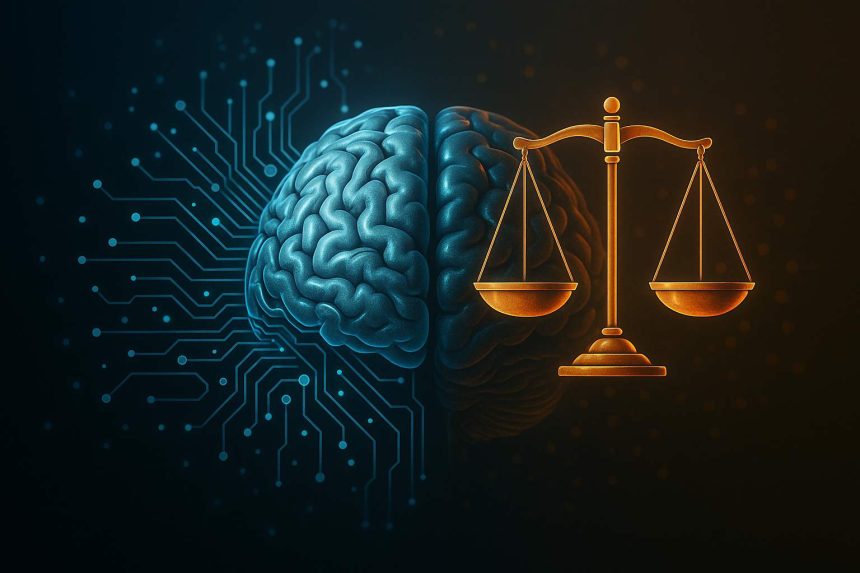The myth of algorithmic neutrality
Algorithms are often described as objective and mathematical — but they are human creations.
Every line of code is written with assumptions, goals, and priorities.
When Cambridge Analytica used data-driven algorithms to target voters, it didn’t simply process information; it amplified biases, emotional triggers, and political divisions.
- The myth of algorithmic neutrality
- How algorithms shape reality
- The invisible bias in code
- Ethics versus optimization
- Transparency and accountability
- Algorithmic audits and regulation
- The human element in AI
- The role of education and culture
- Toward algorithmic transparency
- The moral imperative of the digital age
The myth of neutrality allows companies to hide behind technology.
“The algorithm did it” becomes an excuse for human choices.
How algorithms shape reality
Algorithms decide what we see, read, and believe.
From social media feeds to search results, they curate the digital world based on invisible rules.
After Cambridge Analytica, it became clear that these systems could be weaponized to distort perception and influence elections.
The danger isn’t only in malicious use — even well-intentioned algorithms can create unintended harm when optimized for engagement rather than truth.
The invisible bias in code
Bias in algorithms doesn’t arise from malice but from data.
If the data reflects historical inequality, the algorithm will replicate it.
When algorithms learn from biased inputs, they produce biased outcomes — reinforcing stereotypes, discrimination, or misinformation.
In the case of Cambridge Analytica, the bias wasn’t racial or gendered — it was psychological.
The algorithm learned what triggered fear, anger, or pride, and exploited it to achieve political goals.
Ethics versus optimization
The modern Internet runs on optimization.
Platforms measure success by engagement, clicks, and watch time — not by truth or empathy.
Algorithms are trained to keep users scrolling, not to inform them responsibly.
This creates an ethical paradox: systems that maximize profit also maximize polarization.
In the absence of oversight, ethical values are replaced by performance metrics.
Transparency and accountability
One of the key lessons from Cambridge Analytica is the importance of transparency.
Users must know how and why algorithms make decisions that affect them.
This includes clear disclosures about data collection, ranking criteria, and targeted content.
Transparency alone isn’t enough — accountability matters too.
When an algorithm causes harm, someone must take responsibility.
Ethics cannot be outsourced to machines.
Algorithmic audits and regulation
In recent years, researchers and regulators have begun calling for algorithmic audits — independent reviews of how automated systems make decisions.
These audits can identify bias, unfair treatment, or potential manipulation before harm occurs.
The EU AI Act and similar proposals aim to create global standards for responsible AI, ensuring that high-risk algorithms meet ethical and legal requirements.
The human element in AI
Ethical AI requires empathy, not just efficiency.
Developers must understand the social consequences of their creations.
The Cambridge Analytica scandal was a failure of conscience as much as code.
Building ethical technology means asking human questions:
Does this tool respect dignity?
Does it empower or exploit?
Does it serve the public good or private gain?
The role of education and culture
Technical knowledge alone cannot ensure ethics.
Computer scientists and engineers need training in philosophy, psychology, and sociology to understand how technology interacts with human values.
Ethical design must become part of organizational culture, not just a compliance checkbox.
Companies that embed ethics in their DNA will build products that last — and earn public trust.
Toward algorithmic transparency
Emerging movements like Explainable AI (XAI) aim to make algorithms more interpretable.
Instead of being black boxes, systems could provide clear explanations for their recommendations or decisions.
This approach restores agency to users, allowing them to question and understand the logic behind digital outcomes.
The moral imperative of the digital age
The Cambridge Analytica episode reminded the world that technology cannot replace morality.
Algorithms reflect human priorities, and without conscious effort, they will always mirror our flaws.
The goal is not to eliminate algorithms but to guide them — to align their purpose with the principles of fairness, transparency, and respect.
Takeaway: The Cambridge Analytica scandal taught that algorithms are not independent of ethics — they embody them.
The future of technology depends on one crucial question: will we design systems that serve humanity, or systems that control it?







